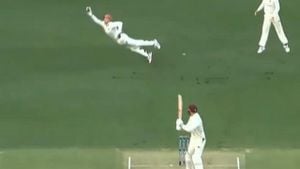CHARLESTON, WV (WOWK) – The West Virginia Legislature has seen notable developments during its current session, focusing particularly on public health and classroom safety measures. The West Virginia Senate recently passed Senate Bill 460, which aims to create religious exemptions for students' vaccination requirements. This bill, introduced by Senate President Randy Smith (R-Preston) and Senate Minority Leader Mike Woelfel (D-Cabell), garnered support from Governor Patrick Morrisey and successfully passed the Senate by a vote of 20-12, with two senators absent.
SB 460 would enable parents to seek exemptions for their children based on religious or moral beliefs, directly challenging existing vaccine mandates imposed by West Virginia schools. This legislation has sparked considerable debate among lawmakers, particularly concerning the balance between public health and individual rights. Prior to the vote, Woelfel attempted to amend the bill to allow private schools the ability to mandate vaccinations for religious reasons, but this proposal was rejected after objection from fellow senators.
Another amendment suggested by Woelfel aimed to maintain the requirement for the polio vaccine even with the new exemptions. Despite receiving more enthusiasm from senators, this amendment also failed to pass. Other proposed amendments from Senators Ryan Weld (R-Brooke) and Joey Garcia (D-Marion) were similarly dismissed, reflecting the contentious nature of the topic as it pertains to parental rights and child health.
Meanwhile, on the other side of the Capitol, the West Virginia House of Delegates has introduced House Bill 2779, which mandates the installation of cameras in every classroom and school throughout the state. The proposed legislation aims to improve safety and accountability within schools, ensuring transparency for parents and guardians concerned about their children's welfare.
Sponsored by Delegate Kathie Crouse (R-Putnam), the bill proposes to equip all educational spaces—excluding places where students may undress, like bathroom stalls and locker rooms—with cameras. This measure, envisioned to provide continuous monitoring, would require the recorded footage to be stored for one year.
Supporters of HB 2779 see it as a proactive step toward fostering safer learning environments and deterring potential misconduct. Nonetheless, questions have arisen about the logistical challenges implicated by such extensive surveillance. There is currently little clarity on the financial ramifications, including the cost of camera installation, the required data storage capacity for videos from multiple schools, or how the state would fund these initiatives.
Currently, West Virginia boasts approximately 770 public and private schools, and the prospect of implementing HB 2779 raises important discussions about how technology can play a role in education. While some believe cameras could serve as valuable tools for accountability, others worry about the potential invasion of privacy for both students and teachers.
With the Senate’s approval of SB 460 and the introduction of HB 2779, West Virginia legislators find themselves at the crossroads of public health, personal freedoms, and educational safety. Each bill encapsulates the diverse viewpoints represented within the legislature, illustrating how different factions prioritize individual rights against community safety needs.
Both bills now await progression through the legislative process, with each proposing to reshape significantly the West Virginia education system. The dynamics of these discussions will likely engage various stakeholders—from parents and educators to public health officials—continuing to affect the state’s approach to education and health measures.



